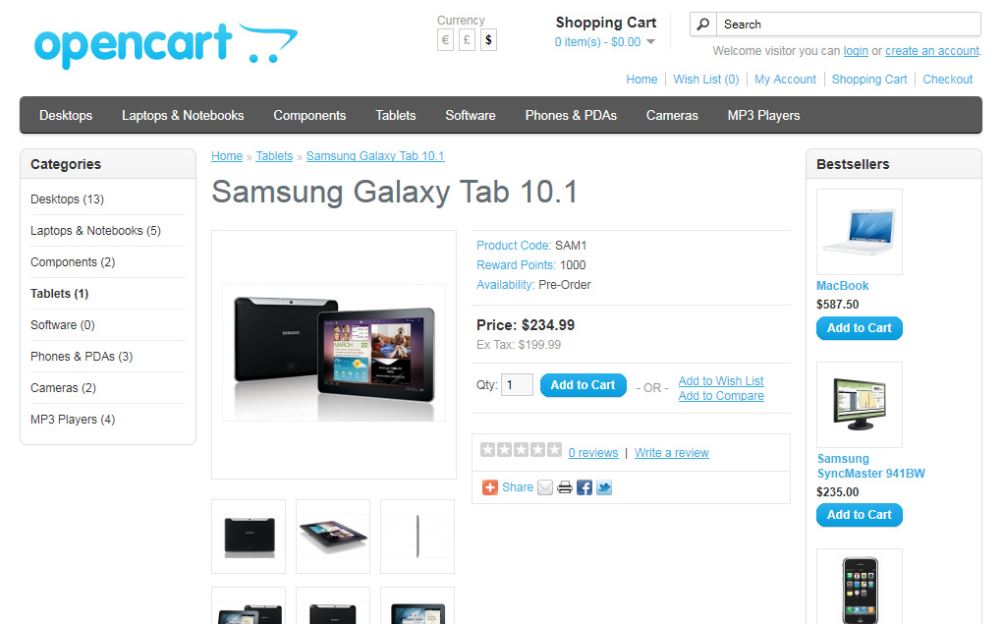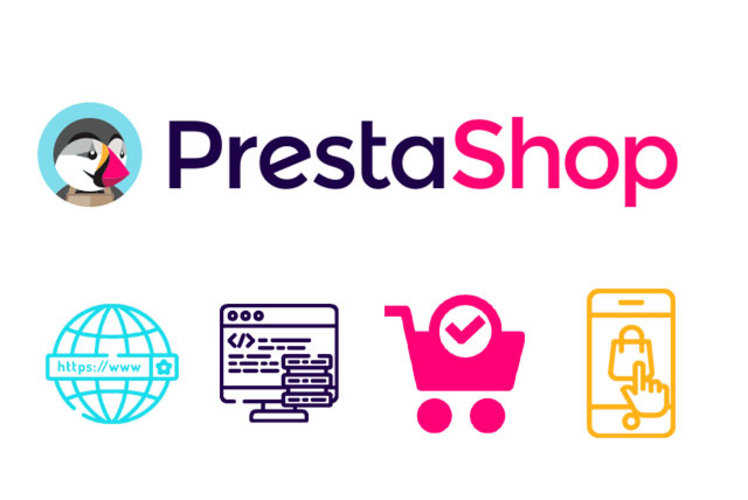Magento is one of the most famous e-commerce platforms that attracts tons of sellers and buyers all over the world. However, for some reason, such as switching platforms or expanding stores, businesses want to find Magento alternatives. If you are one of them, this article is made for you because we will recommend the top 10+ Magento alternatives that you should never ignore!
Why should you find Magento alternatives instead of using Magento?
Table of Contents
Magento is a good platform to build and manage an online store. It provides you with beautiful layouts and templates, wonderful features, etc. But why do some businesses still decide to seek out Magento alternatives? The reasons are:
- Demand a high cost to run: Magento brings users extremely powerful features. However, it comes with quite a large cost that businesses have to pay. Not only that, to develop and maintain it, businesses need a small fee. This is not easy for startups and small businesses
- Complex to set up and use: For beginners, it is not easy for you to set up and manage Magento on your own. Usually, you need to lend an expert’s hand to fully discover its under-magic
- Performance is low: When your business grows, traffic and transactions increase rapidly, which may make it challenging for Magento to reach its optimal performance
- Security issues: When using Magento, businesses can integrate third-party payment methods to redirect customers to transactions at another website. This is because open-source Magento does not yet meet PCI compliance requirements. This will make transactions unsafe and you need time and money to find protection methods
- Lack of support: One of the biggest downsides of Magento is its lack of official support. Users find it hard to seek out support when they are in trouble
- Limited scalability: This problem usually occurs for businesses that use the free version, which only supports a single database system. The multilingual functionality will be limited, especially when businesses outgrow the free functionality of the platform

Why why should find Magento alternatves?
2 types of Magento Alternatives
There are many alternatives to Magento, however, we can separate them into 2 categories e-commerce website builders and Open Source Platform. Let’s learn to decide which one is better for your store.
E-commerce website builders
They are known as hosted e-commerce platforms as well. Some famous names include Shopify, BigCommerce, Square, and Wix. They offer you ready-to-use solutions so that you can easily set up online stores without worrying about infrastructure complexities.
Hosting included, easy-to-learn, and requiring little to no technical skills are some of the main benefits of an e-commerce website builder. However, regarding e-commerce website builders, you must pay monthly or annual fees. Another downside is that source code is not accessible, and customization abilities are limited.
Open Source Platform
Some of the famous open-source platforms are Magento, WooCommerce, and Open Cart. It enables us to build and manage an online store by ourselves, and we can access the source code as well. In other words, we can modify, customize, utilize, and distribute the software freely.
The advantage of an open-source platform is you can customize stores unlimitedly. You do not need to pay monthly or annual costs so the required initial investment is not too high. One disadvantage of using an open-source platform is that you need to know some technical skills to build your stores, otherwise, you will need help from technical experts. One of the big downsides of open-source eCommerce platforms is that you have to do maintenance on your own without supports

2 types of ‘Magento alternatives’
Open-source alternatives for Magento
If you find that open-source platforms are ideal Magento alternatives and fit your needs and wants, these are some suggestions for you:
OpenCart
Open Cart is an Amazon-hosted e-commerce platform that is one of the best Magento alternatives. As with Magento, this website does not require you to purchase or configure hosting, so it is easy to set up a store. OpenCart is equipped with more than 13000 modules and themes to make sure you can find the best theme fit with your tastes. Moreover, OpenCart is available for multi-language, multi-currency which is needed for you to grow and expand your store. You can edit the code as you want so the design is not limited.
Feature
- Store domains (Multi store)
- Storage space
- Unlimited products & categories
- Product filter
- Multi-currency and multi-lingual
- Marketing Dashboard
- Manual backup request
- Bring your SSL certificate
- Email support
- Phone support
Pros
- Free. You do not need to purchase
- Fast performance and lightweight platform
- Highly customizable
- There are a lot of third-party modules and many extensions as well
Magento also offers a variety of extensions to enhance your store’s functionality and improve user experience. These modules are designed to address specific needs like optimizing checkout, improving SEO, or managing inventory. Explore Extensions in Magento to find the perfect solutions for your business and elevate your online store’s performance!
Cons
- Updates are slow and not regular
- The checkout process is not too fast
- SEO functionalities is limited
- Included hidden costs you need to pay such as hosting, experts hiring, security, domain…
Price
- Bronze:: $59/month (1CPU 2GB)
- Silver: $99/month (CPU 4GB)
- Gold: $199/month (4CPU 8GB)

Switch from Magento to Open Cart
ZenCart
ZenCart can not stay out of the Magento alternatives list because it is a powerful e-commerce software solution. It is a perfect choice for businesses of all sizes, from small-medium stores to the big ones. Even if you choose the retail, wholesale, or e-commerce business model, ZenCart still fits your needs and wants.
ZenCart is available for free, offering a range of essential features. However, for additional functionalities and comprehensive support, you have the option to invest in paid versions. Zen Cart can be installed on-premise, allowing businesses to run the software on their own servers and infrastructure or in the cloud, taking advantage of the scalability and adaptability of cloud-based hosting options.
Features
- Product and Order process management: Define product attributes such as color, size, and other options, sorting products into categories and sub-categories easily
- Payment gateway integration
- Provide Marketing tools
- Gather and showcase product reviews
- Present product features
- Bulk upload products
Pros
- Easy to customize as you want
- Free and added costs are not too high
- Easy third-party integrations
- Available features are plentiful
Cons
- Compared to other sites, ZenCart is not too beautiful or visually aesthetic
- The site reporting is quite simple, it only manages the products that can be viewed, the purchases, and the orders.
Price
Free to download, but you need to pay a fee if you want to use extra features.

Zencart can be a Magento alternative
WooCommerce
If you need Magento alternatives, you can choose WooCommerce. WooCommerce has a beautiful and user-friendly interface that makes it easy to create and manage stores, even when you have little technical background. WooCommerce will be appropriate for small to medium businesses. In a nutshell, it is still a flexible and powerful choice for your online stores.
Features
- Flexible and secure payment
- Automated tax calculation
- Shipping options
- Subscriptions and memberships
- A variety of third-party integration options
Pros
- The source code is available and free for everyone
- You can create promotions in any Marketing channel, besides WooCommerce
- Plenty of layouts to choose from, easy and fast to apply
- There are a lot of extensions to meet your specific requirements
- Easy to use even for unsavvy people
- SEO-friend so that you can raise traffic and sales
- Easily integrate with third-party platforms
- Security is a strength of WooCommerce
- Receive a lot of support from the community
Cons
- Included are some hidden expenses
- More than 1000 plugins are separate software modules, so it requires additional memory, processing power, and internet bandwidth
- Lack of legal documentation poses you with legal or tax-related issues
- Updating policies is poor
- Limited customization option
- Limited customer support
- Limited Scalability
Price
- Download cost: Free
- Plugin and theme costs: range from $300 to $400
- Hosting cost: From $100 to $500
- Maintaining and securing costs: Over $200.000

WooCommerce is a good choice for Magento alternative
Drupal
Another option for Magento Alternatives is Drupal. It can be considered a versatile and flexible platform for running a business store. Drupal is an open-source content-management framework and if you have some knowledge about techniques, you can develop a simple website such as eCommerce platform, blog…
Features
- Advanced API Support: build dynamic-generated content, integrate Drupal with other systems, and develop smart mobile applications
- Multilingual & multi-currency
- Plenty of extensions: 50.000+ modules, a lot of themes and projects
- Classic multi-use and multi-domain
- Automation
- Extensive User Management
Pros
- Strong security that limits the risks when running your online stores
- Updating regularly
- Increasing the number of modules constantly helps enhance the capabilities of use and functionality
- Have a big user community
- With multisite, you can create other sites on the same system code base
- Mobile-friendly
Cons
- Asked for technical background to unlock all the powers and features of Drupal
- Excessive memory consumption to load its huge modules
- Each updated time can cause big changes
- You may face some maintenance issues
- Not having many choices of themes
Price
Free for downloading. But there are some hidden fees you need to prepare for if you can add necessary features by yourself and need to hire experts.

Choose Drupal to create an online store
PrestaShop
PrestaShop is the ultimate suggestion when you are looking for Magento alternatives. Like Magento, Prestashop is an open-source e-commerce site. It is used by more than 250,000 stores worldwide, is available in 75 languages, and supports many different currencies.
Features
- There are more than 4000 plugins
- Orders: Shopping Cart, Checkout, Guest purchase, Adding orders from the administration panel, Store administrator notifications (email) about orders, One-page checkout…
- Catalog: Adding and editing products, Monitoring – showing product data for which data is missing, Accepting regulations before purchase, Sorting products in lists…
- Customers: Adding/editing clients from the administration panel, Customer panel, Adding multiple addresses to one client…
Pros
- Cost-saving because the basic version is free
- Easy to use, as long as you have some basic coding knowledge
- Flexible and scalable because you can modify codes easily to fit your needs
- There are plenty of payment options, such as Apple Pay, Google Pay, Paypal, Amazon Pay
- Support a lot of languages and currencies
Cons
- Limited features compared to other open-source e-commerce platforms such as OpenCart, Magento,…
- Need pay for being supported: €249 for tech support, €248.99 for migration and updates, €90 for the performance pack
- Some security issues
- Additional costs for setup, support, and security may be high
Price
The standard version is free but costs for hosting, support, modules, and themes,… are required

One of the best Magento alternatives – PrestaShop
Bagisto
The final open-source alternative for Magento mentioned in this article is Bagisto. Bagisto is an ideal choice if you want to own a user-friendly and fast online shopping website. Similar to the other mentioned websites, Bagisto also provides essential features that help you cut down on time, cost, and human labor to build an online store.
Features
- Multi-vendor market place
- Inventory Management
- Commission Rules
- Auto-approval of product
- Product Assignment
- Landing page
- Review and ratings
- Admin benefits
- Diverse Add-ons
- SEO Solution
- Maximized SEO management
- Product SEO
- Product Search by image
- Core website vitals
- Payment integration
Pros
- Friendly-user interfaces that make it simple and effective for visitors to search rapidly, accurately
- High level of customization to fit your needs and wants
- There are plenty of features to increase business efficiency
- Customer support service is always available
- Suit all forms of business from a small, a medium to a large one
Cons
- You need some technical knowledge and experience to set up on your own. Otherwise, you should hire an expert team to help you
Price: Free to download

Choose Bagisto as a Magento alternative
Magento Alternatives: E-commerce Website Builders
If you want to switch from open-source to e-commerce website builder options, below are some suggestions for you!
Shopify
As eCommerce website builders, Shopify must pop out of the heads of many people. There is no doubt that Shopify is one of the best Magento alternatives you can find. It is an easy-to-use platform because everything is available, and you do not need much effort to build and set up by yourself. It only requires drag-and-drop action to customize the store. Let’s learn more about the features, pros, and cons of Shopify.
Features
- Customizable templates
- Tools to sell across channels
- Fast and secure checkout
- Built-in Marketing features
Pros
- You can receive support from the Shopify support team easily and rapidly
- A perfect choice for dropshipping business
- User-friendly interface so it is easy for beginners to use and set up
- A simple payment process, with a lot of payment gateways to choose from
- There are hundreds of themes to choose from
- Mobile-friendly website to ensure the experience for customers
- There are many apps and plugins for your store
- Robust SEO and Marketing tools to maximize sales potential
- Shopify is secure for your online store
Cons
- Pricing: There is a basic version for you to choose from, but if you want to use an advanced version, you need to pay more
- Customized ability is limited
- Coding language is not too popular
- Shopify’s CMS is straightforward and user-friendly, but it tends to be less flexible compared to other CMS platforms
- Some themes are free for you, however, some themes must be paid for
- Shopify does not offer you email hosting that limits your ability to associate it with your domain name
Price
- Basic: $19/month (Suitable for solo entrepreneurs)
- Shopify: $49/month (Suitable for small businesses)
- Advanced: $299/month (Suitable for medium businesses)
- Plus: starts from $2.300/month (Suitable for large entrepreneurs)

Shopify is one of the best Magento alternatives
Wix eCommerce
Wix eCommerce has the potential to become one of the best Magento alternatives. Different from Magento, Wix makes it much easier to build a store because everything is available for you, from tools for product listing, and inventory management to a payment gateway. If your business scale is small or medium, Wix eCommerce will be a perfect option that you should not ignore.
Features
- Out-of-the-box design features
- Adding and managing products
- Inventory management and tracking
- Payment and checkout process
- SEO and Marketing tools
Pros
- User-friendly interface, even with beginners
- Customized design to fit your taste
- Diverse payment options to choose from
- Optimize mobile performance
- Affordable price
- Pretty secure
Cons
- Not suitable for large business
- Transaction fees might be high with some Wix e-commerce plan
- Not too good at SEO capability
- The speed of the website might be a con
- Limited customization
- There are not many advanced features compared to other website
- Hard to transform from Wix to other platforms
Price
- Business VIP: $35/month
- Business unlimited: $25/month
- Business basic: $17/month

Wix website builder
BigCommerce
Another alternative to Magento is BigCommerce. It is a platform that provides you with almost all the needed tools to create an online store on your own. The main strength of BigCommerce is considered to be the “multi-storefront” feature that allows sellers to create multiple stores with just one subscription plan, and its multi-currency feature is also very good. However, the writer also points out some disadvantages of BigCommerce such as the limited range of design templates, the drag-and-drop editor is not easy to use, the font selection is limited, and the blog features are not complex.
Features
- Cross-Channel E-commerce
- B2B Selling
- Storefront Conversion: Coupons and Discount, Sitespeed, SEO, Digital Wallets, Faceted Search, Merchandising
- Storefront design: Page builder visual editor, theme customization, checkout customization, mobile optimization, preview before publishing, WordPress integration
- Multi-currency, multi-language, global CDN, cross-border fulfillment
- Staging environment
- Reporting and Analytics
Pros
- Able to create many stores with an account only
- There are plenty of built-in features to optimize sales
- Third-party real-time shipping quotes
- Pay BigCommerce no transaction fees
- Unlimtied user accounts
Cons
- Free themes are not diverse, you must pay fees to buy outstanding themes
- There is a constraint on the variety or quantity of typefaces (fonts) available for use
- You need to buy an advanced version to have the feature of an abandoned cart saver
- Absence of a feature that allows users to subscribe and receive updates from a blog through Really Simple Syndication (RSS
Price
- Standard: $29/month
- Plus: $79/month
- Pro: $299/month
- Enterprise: Contact for price

Consider choosing BigCommerce as a Magento alternative
Squarespace Commerce
Squarespace must be one of the most famous Magento alternatives. When using Squarespace to create an online shop, you will be given simple tools and a friendly interface to accomplish it. It received 4.6 stars/5 stars according to the votes of customers and ranked 2 among all hosting website builders. Of course, besides its strengths, Squarespace has its own downsides. Let’s find out more about it below.
Features
- Create a website: Website overview, website templates, Portfolios, Blogs, Analytics
- Sell products/services: Memberships, store management, commerce extensions, eCommerce overview, schedule appointments, client invoicing, courses,…
- Marketing: SEO, Creator tools
Pros
- More than 100 templates for your store
- Free SSL is available for all pricing plans
- Storage and bandwidth are limitless
- Easy-to-use: easy to set up, easy to create, and manage website
- If you choose annual plans you can own a free domain
- Having good media management tools
Cons
- Do not support the feature of multi-currency
- Cannot switch template
- Cannot choose Google Pay as a payment method
- No phone support
- Integrating with third-party platforms is limited
Price
- Personal: $25/month
- Business: $36/month
- Commerce: $40/month
- Commerce: $72/month

Squarespace becomes an ideal Magento alternative
Volusion
The last recommended hosted eCommerce platform that can become one of the Magento alternatives is Volusion. It is the perfect option for small to midsize eCommerce businesses. As other website builder platforms, Volusion bring a full toolkit for you to start, run, and grow your own store.
Features
- Mobile-friendly themes
- Inventory management
- Cross-selling functionality
- Comprehensive report system
- Mobile app
- Third-party app
- SEO: HTML/CSS editor access
- Security: Uses industry-leading AES-256 encryption algorithms to secure your data
Pros
- Support many payment gateways, such as Paypal, Stripe, Amazon Pay, and Apple Pay
- You can manage your online store from a mobile phone because Volusion launched a mobile app
- A lot of features to support your eCommerce businesses
- Supporting 1000+ apps through Zapier
Cons
- It does not have have user-friendly interface, you need to some background and experience to customize and set up
- The price is a little high compared to others
- Volusion is not a choice for digital products
- Help and support is not highly appreciated
- Lackong blog function
Price
- Personal: $26/month
- Professional: $71/month
- Business: $269/month
- Prime: Custom

Volusion needs to be recommended as an ideal Magento alternative
FAQ
Is it easy to switch from Magento to a different e-commerce platform?
Depending on the target platform, size, and complexity of your Magento store, the transition can be easy or challenging. However, in general, the switching process is pretty complicated because you need to migrate and integrate data and check if all the functions are good. In this case, you can hire experts to help you ensure that all the important data are secure.
Are Magento alternatives more cost-effective than Magento?
Some Magento alternatives may be more cost-effective than Magento, while others may be more expensive. It totally depends on your needs and wants, and your business size…
Conclusion
While Magento is a good platform to create and grow your online businesses, you can still can consider other Magento Alternatives. In this article, BSS Commerce has suggested you all the best choices that you can find. We hope that you can make up your mind your best solution. In case, you find it hard to switch from Magento to other platforms, Magento 2 migration service by BSS Commerce is always ready to help!
